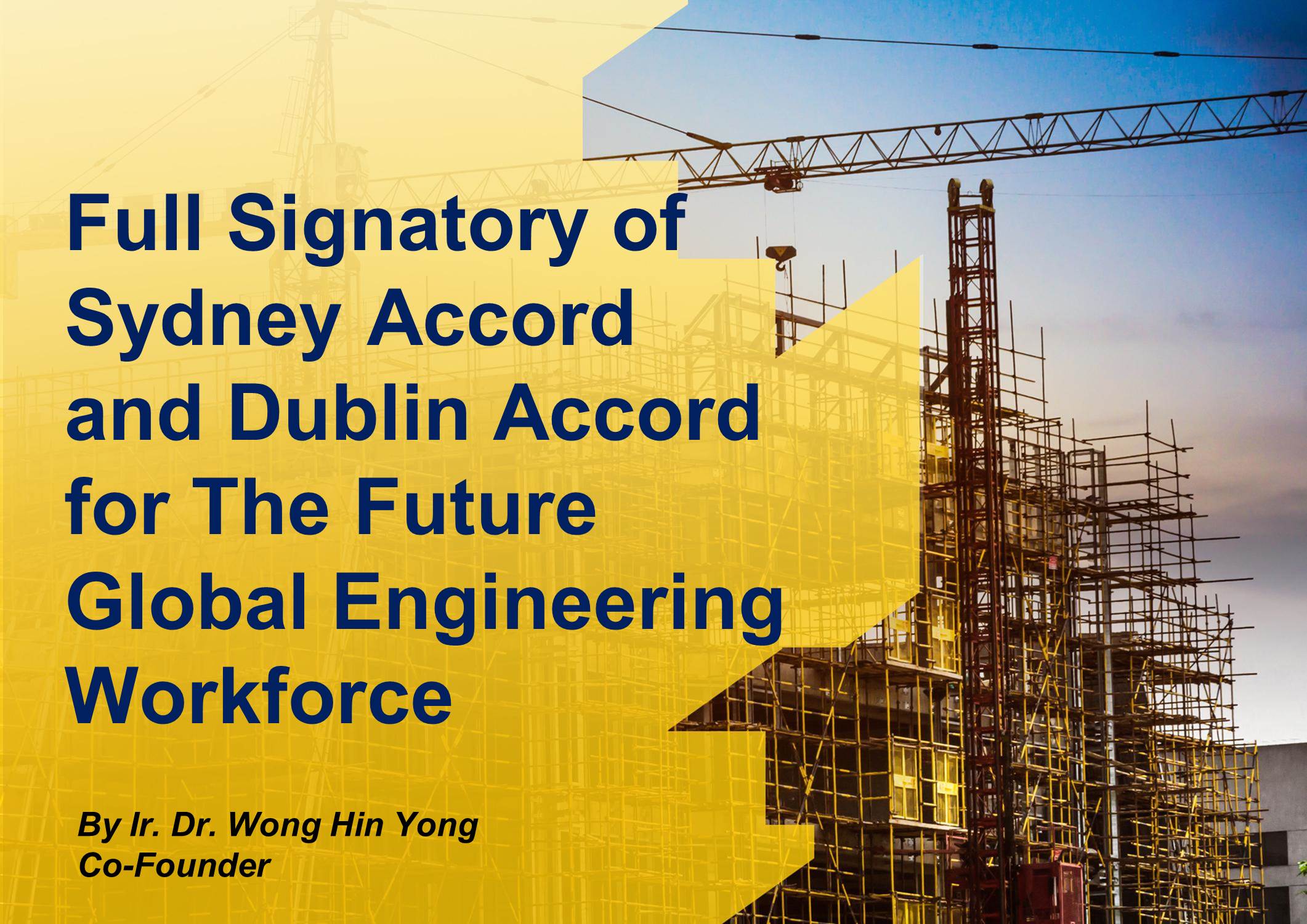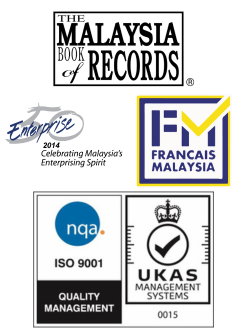Author: Ir. Dr. Wong Hin Yong
Following the July’s IPM newsletter on “ The Essence of Vocational Education Transformation From The Perspective of Industry 4.0”, in this August’s newsletter we will be sharing a great news on the development of Technical and Vocational Education and Training (TVET) in this country and a historical key milestone achieved by our very own Board of Engineers Malaysia (BEM) .
On 27th June 2018 (12.00 PM GMT), in the International Engineering Alliance Meeting (IEAM) held in London, it was announced that Malaysia which was represented by BEM, has successfully been accepted as a Full Signatory for two international mutual recognition agreements for education programmes in the Engineering TVET sector, namely
- The Sydney Accord (SA) for engineering technology education, generally in the form of Bachelor in Engineering Technology; and
- The Dublin Accord (DA) for engineering technician education, generally in the form of Diploma in Engineering or Diploma in Engineering Technology.
Flowing from the Washington Accord (WA) where BEM Malaysia is a full signatory for the accord for Engineering Education, similar Agreements namely Sydney and Dublin Accords were developed for Engineering Technologist and Technician in which graduates of programmes accredited by BEM, through its Engineering Technology Accreditation Council (ETAC), are now recognized by other signatory nations of the two Accords. In other words, qualifications accredited or recognised by other signatories are recognised by each signatory as being substantially equivalent to accredited or recognised qualifications for practice as an engineering technologist and technician respectively within the engineering team.
The key differentiating characteristic of the three engineering professions are Engineering Graduates are expected to work with Complex Engineering Problems; Engineering Technologist graduates are expected to work with Broadly-defined Engineering Problems.; Engineering Technician graduates are expected to work with well-defined Engineering Problems.
Graduates of an engineering technology programme are expected to attain the following in the practice oriented learning environment: [1]
- Knowledge: apply knowledge of mathematics, science, engineering fundamentals and an engineering specialisation to defined and applied engineering procedures, processes, systems or methodologies;
- Problem analysis: Identify, formulate, research literature and analyse broadly defined engineering problems reaching substantiated conclusions using analytical tools appropriate to their discipline or area of specialisation.;
- Design/ development of solutions: Design solutions for broadly-defined engineering technology problems and contribute to the design of systems, components or processes to meet specified needs with appropriate consideration for public health and safety, cultural, societal, and environmental considerations.;
- Investigation: Conduct investigations of broadly-defined problems; locate, search and select relevant data from codes, data bases and literature, design and conduct experiments to provide valid conclusions.;
- Modern Tool Usage: Select and apply appropriate techniques, resources, and modern engineering and IT tools, including prediction and modelling, to broadly-defined engineering activities, with an understanding of the limitations.;
- The Engineer and Society: Demonstrate understanding of the societal, health, safety, legal and cultural issues and the consequent responsibilities relevant to engineering technology practice.;
- Environment and Sustainability: Understand the impact of engineering technology solutions in societal and environmental context and demonstrate knowledge of and need for sustainable development.;
- Ethics: Understand and commit to professional ethics and responsibilities and norms of engineering technology practice.;
- Individual and Team Work: Function effectively as an individual, and as a member or leader in diverse technical teams.
- Communications: Communicate effectively on broadly-defined engineering activities with the engineering community and with society at large, by being able to comprehend and write effective reports and design documentation, make effective presentations, and give and receive clear instructions;
- Project Management and Finance: Demonstrate knowledge and understanding of engineering management principles and apply these to one’s own work, as a member and leader in a team and to manage projects in multidisciplinary environments;
- Life Long Learning: Recognize the need for, and have the ability to engage in independent and life-long learning in specialist technologies
By being signatories to WA, SA and DA Accords, the accredited academic programmes by EAC and ETAC in Malaysia are now considered by the international engineering profession as having met the high standards necessary for graduates to enter the profession at the global level. This also implies that our graduates will be internationally recognised and hence help to attract foreign companies to set up their businesses in Malaysia.
These global recognitions would also mean more cross border collaboration and mobility are expected of our graduates within the signatories of the accords. These would allow our graduates to gain valuable exposure and international experiences to become a global engineering technologist or technicians. Likewise, skillful engineers, technologist and technicians from other signatory member counties will arrive at our shore for employment. Hence this would have a great impact on how our Malaysian trained engineers, technologists and technicians are to competing on the same level of playing field with our counterparts in other parts of the globe especially coming from member countries of the three Accords.
So the next question would be “What it takes to be a forward looking Global or International engineer, technologist and technician?”
To stay competitive, one should embrace the key characteristics of a future global engineering workforce.
Traditional Engineers typically ONLY:
- considers specific object or process
- focuses on technical issues
- solves the immediate problem
- considers the local context
- assumes others will deal with political, ethical, and societal issues
Whereas a future and global Engineers will:
- considers both technical and non-technical issues synergistically
- strives to solve the problem for infinite future
- considers the global context
- acknowledges the need to interact the experts in other disciplines related to the problem
Following Malaysia and BEM successful admission as a Full signatory to WA, SA and DA, engineers, technologist and technicians of the nation would need to strive and embrace the positive impacts of the Accords and to gear oneself towards to stay competitive in delivering engineering services around the globe and more importantly to help Malaysia to achieve the status of a Developed National by 2020 if not in a very new future to come.
Ir. Dr. Wong Hin Yong
Co-Founder
IPM Group
References:
[1]Engineering Technology Programme Accreditation Manual 2015
[2]Technologies for Sustainability Systems, “Principles of Sustainable Engineering” Penn State University
[3] BEM news , “MALAYSIA GAINS INTERNATIONAL RECOGNITION FOR ENGINEERING TVET” , http://www.bem.org.my

